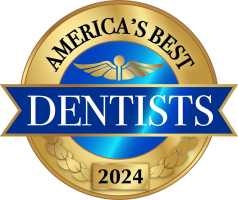Bruxism or Teeth Grinding and Jaw Clenching

Bruxism, commonly known as teeth grinding or jaw clenching, is a condition that affects many people, and it can lead to serious oral health problems. In this article, we will discuss the symptoms and treatments for bruxism in simple terms, so you can understand this condition and know what to do if you think you might have it.
Symptoms of Bruxism
The most common symptom of bruxism is teeth grinding or jaw clenching while you sleep. You might not even be aware that you are doing it, but your partner might notice the sound of your teeth grinding together at night. Other symptoms include headaches, jaw pain, tooth sensitivity, and even ear pain.
If you experience any of these symptoms, it is important to talk to your dentist, who can examine your teeth and jaw and determine if you have bruxism.
Causes of Bruxism
The exact cause of bruxism is not always clear, but stress and anxiety are often contributing factors. People who have high levels of stress or anxiety may be more likely to grind their teeth or clench their jaw while they sleep. Other possible causes include misaligned teeth or jaw, certain medications, and sleep disorders such as sleep apnea.
Treatments for Bruxism
The treatment for bruxism depends on the cause and severity of the condition. In many cases, simply reducing stress and practicing relaxation techniques can help reduce teeth grinding and jaw clenching. Your dentist may also recommend a mouthguard or splint to wear while you sleep, which can help protect your teeth from the damage caused by grinding.
In some cases, your dentist may recommend orthodontic treatment to correct misaligned teeth or jaw. This can help relieve the pressure on your teeth and reduce the grinding and clenching.
If the cause of your bruxism is related to sleep disorders such as sleep apnea, your doctor may recommend treatment for the underlying condition, which can help reduce your teeth grinding and jaw clenching.
Prevention Tips for Bruxism
While there is no surefire way to prevent bruxism, there are some things you can do to reduce your risk. First, try to reduce stress and anxiety in your life through relaxation techniques such as meditation, yoga, or deep breathing exercises.
You should also avoid caffeine and alcohol, which can exacerbate bruxism symptoms. If you are taking medication that may be contributing to your teeth grinding, talk to your doctor about alternatives.
Finally, try to maintain good oral hygiene habits, including brushing and flossing regularly and seeing your dentist for regular checkups. By taking care of your teeth and gums, you can help reduce the risk of damage from bruxism.
In conclusion, bruxism is a common condition that can lead to serious oral health problems if left untreated. If you think you might have bruxism, talk to your dentist or doctor. With the right treatment and prevention strategies, you can reduce your symptoms and protect your teeth and jaw from damage.



